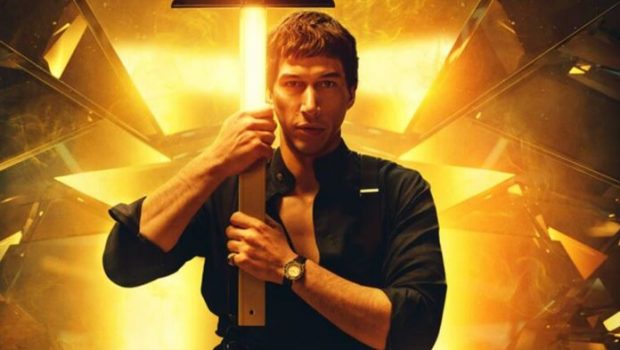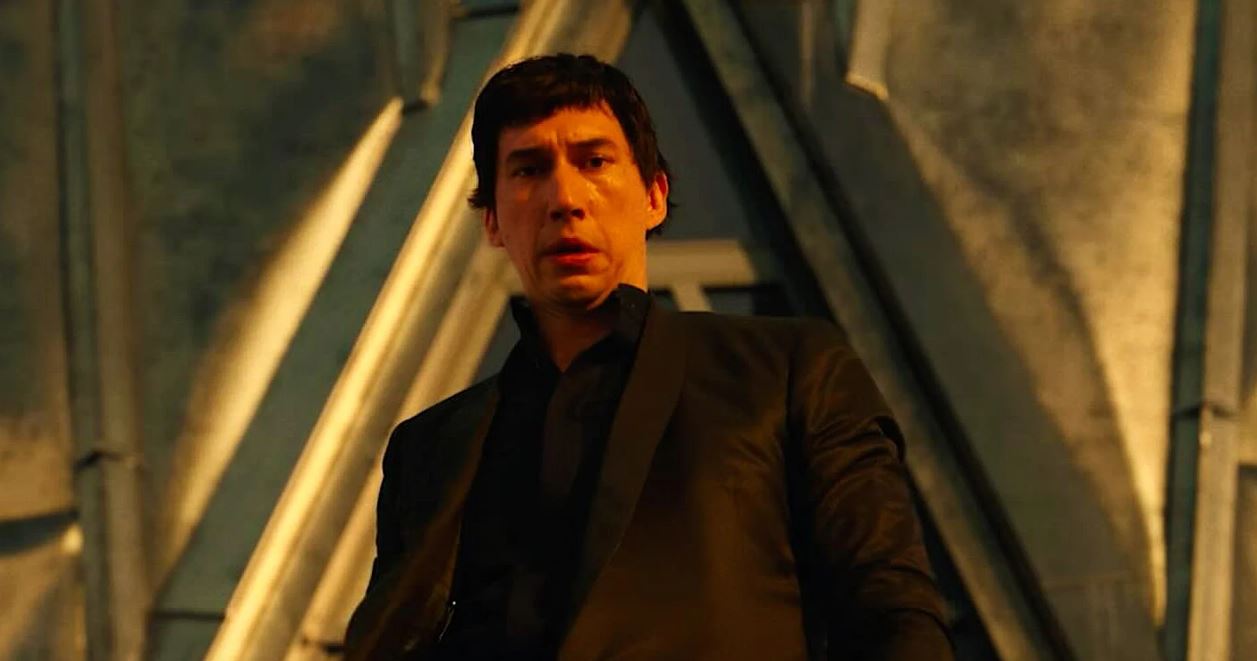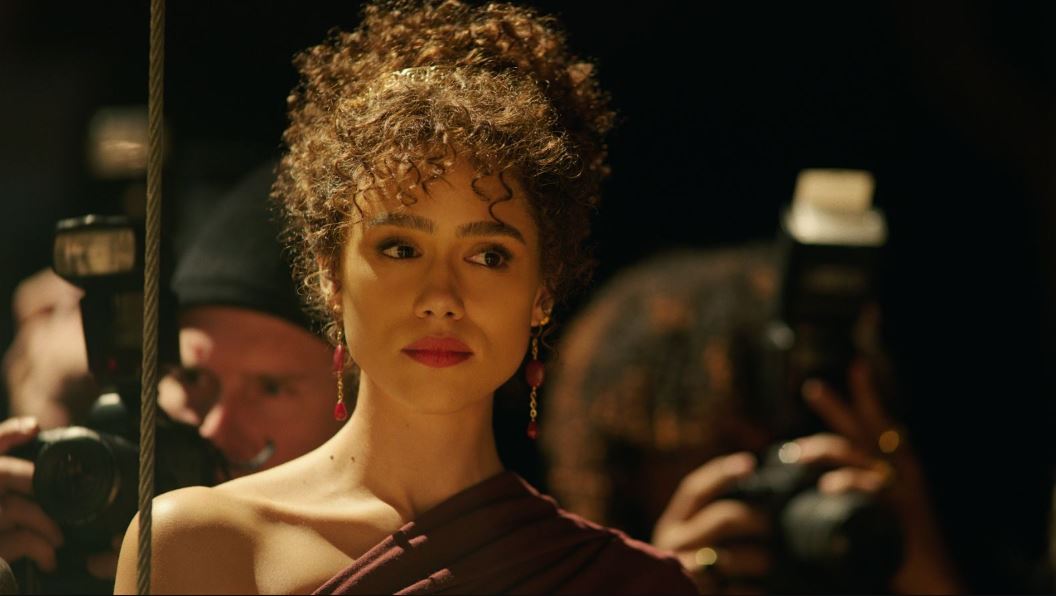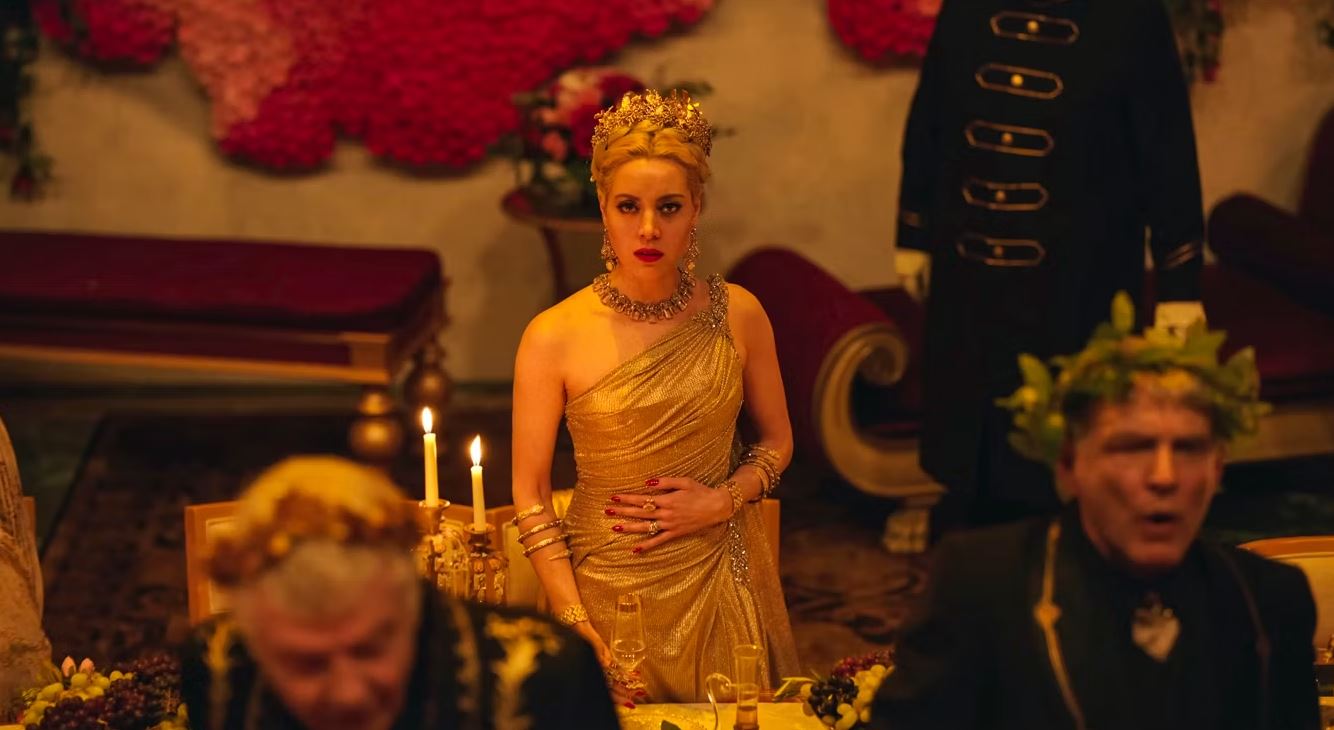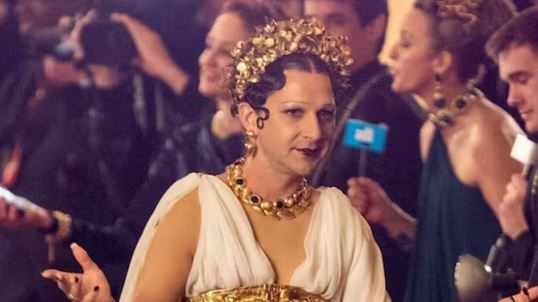Megalopolis – Film Review
Reviewed by Damien Straker on the 22nd of September 2024
Madman presents a film by Francis Ford Coppola
Written by Francis Ford Coppola
Produced by Barry Hirsch, Fred Roos, Michael Bederman, and Francis Ford Coppola
Starring Adam Driver, Giancarlo Esposito, Nathalie Emmanuel, Aubrey Plaza, Shia LaBeouf, Jon Voight, Laurence Fishburne, Kathryn Hunter, and Dustin Hoffman
Cinematography Mihai Mălaimare Jr.
Edited by Cam McLauchlin and Glen Scantlebury
Music by Osvaldo Golijov
Rating: TBA
Running Time: 138 minutes
Release Date: the 26th of September 2024
Francis Ford Coppola only had a concept of a plan. Megalopolis is the American epic he has been attempting to develop since 1977. An entire generation or two of actors was ready to be cast in the film before the project was canned, revived, and derailed again. The plan in the 1980s was that the film would unfold over a single day in New York with the city juxtaposed against Catiline Rome. It never came to fruition. It was then to be filmed in the early 2000s, but shooting was disrupted by the September 11 terrorist attacks. The film has now finally opened albeit to mixed reviews and a dismal box office performance that aptly reflects its disappointing form.
The poor reception has also been compounded by various industry scandals, including but not limited to inappropriate behaviour, fake reviews in the film’s trailer, and hilariously Coppola rating the film himself five-stars on his own Letterboxd account. There is extensive information about how chaotic and unprofessional the actual shooting process was at times too. The noise aside, what is indisputable is that Megalopolis was not worth the drama. It is a poor film that fails to sustain its dramatic tension or utilise its rich cast. Consequently, this terrible passion project should see this once great director go quietly into the night.
The film’s plot is a trainwreck. It is now a satire of ancient Rome but set in a modern American society called New Rome. It opens with a man named Cesar Catilina (Adam Driver) preparing to step off the edge of a building. We assume he is going to commit suicide. However, he reveals that he has the ability with the click of his fingers to slow time. He is also an architect who is battling against his older rival, Mayor Cicero (Breaking Bad’s Giancarlo Esposito). They both have their own conflicting plans to develop the Megalopolis site themselves in the downtown part of the city.
Little does Cicero know that Cesar has started falling in love with his daughter, Julia (Game of Thrones’ Nathalie Emmanuel). It also begins to affect Cesar’s special powers but fortunately he is protected somewhat by his driver, Fundi Romaine (Laurence Fishburne who also narrates the story). There is also an ambitious news reporter named Wow Platinum (Aubrey Plaza) vying for Cesar’s attention. Meanwhile, a Machiavellian figure, Clodio Pulcher (Shia LaBeouf), is attempting to cause chaos in the city by inciting riots and manipulating major political figures, including Hamilton Crassus III (Jon Voight). These are the deadly forces that are attempting to disrupt Cesar from rebuilding New Rome as a utopia.
Megalopolis is an incomprehensible mess posturing as art. It is not as though the film is bereft of interesting ideas or themes. Nor is any of this material outdated. Coppola is clearly concerned about the decline of the American empire because of corruption, self-interest, land disputes, celebrity, power, and more. These ideas are timely because of the rise of extremist politics in America, particularly the MAGA movement. Trump could be partly why Coppola revisited the project. It might have also marked a nice bookend to his career. The Godfather (1972) explored many of the same ideas through the lens of a Shakespearean tragedy. The reason this film fails is because unlike The Godfather trilogy there isn’t a coherent story to house these themes and ideas. There is not enough reason to care about Cesar or even understand why he has magic time powers. This lack of care and context accounts for why Megalopolis does not build dramatic tension. Threads are discarded with however the wind was blowing inside the writer’s room.
In one sequence, Cesar is arrested for sleeping with the virgin pop star Vesta Sweetwater (think Taylor Swift). However, the incriminating video is quickly deemed fake, and the thread is dismissed. Later, Cesar is attacked only for his facial wound to vanish within the closing moments. The rest of the story veers between obvious and clunky to outright pretentious. Deep into the film, Fundi’s voice over tells us, ‘it was a time of greed’ as if the influence of the wealthy and powerful wasn’t already apparent. Cesar’s dialogue also grows increasingly florid with lines such as, ‘what is time? What is consciousness?’ Without a strong screenplay the film is unsustainable as a satire, thriller, sci-fi drama, or even a Shakespearean tragedy.
Another disappointment is Coppola’s inability to fully utilise his exciting cast’s talents. Perhaps the elusiveness of the story was too much for these heavyweight actors. Adam Driver and Giancarlo Esposito struggle to make their characters their own because of the confusing material. Is the rivalry supposed to be a take on Fritz Lang’s Metropolis (1927) where two combative men of different ideologies find peace in the end? Is it meant to reflect America’s modern race war? The women are a bit better. Aubrey Plaza has a few quietly funny moments only for her character to disappear for a long stretch. The disappearance marks the film’s major structural problems. Natalie Emmanuel is sweet and disarming, which helps.
One must ask why some actors have been included at all. Laurence Fishburne has a powerful, eloquent voice as the narrator, but the character Fundi lacks agency and is wasted. Similarly, why is Dustin Hoffman present if he has nothing to do? Jon Voight mumbles his lines incoherently before featuring in the worst scene involving a bow and arrow. It is an embarrassing, clumsy moment. Shia LaBeouf, who appears in drag and then becomes a MAGA-type figure of disruption, is just plain weird. It’s a bit like the film’s volume of ideas. There is plenty of potential with this cast. However, the incoherent story leaves these talented actors by the wayside.
The film does not have enough to show for its huge budget, which ballooned out to $120 million dollars. There are various montages centred around nature and the earth. It’s a bit like The Tree of Life (2011) or similar arthouse films about creation. It looks pretty but none of it will linger for too long. The costume design also blends ancient Rome, some vintage styles, and modern clothes. Like the rest of the film it is a hodgepodge, perhaps reflecting America being pulled between the past and present if we are being generous.
Equally strange is the talk around the film’s most overhyped gimmick. Since its premiere it was touted that a person from the audience would be able to interact with Adam Driver. Why? Having seen the film that question still lingers. During the film’s early media screening, this looked like it would unfold only for the moment to fizzle. It was utterly bizarre but also made no difference to the film’s dwindling quality. Think of the poor cinemas wasting time organising this pointless claptrap. If Coppola successfully implemented technology that would allow the audience to ask questions, ‘what the hell were you thinking?’ would be a great start. While the cast is stacked, the film’s price tag feels unjustified because of its visual gimmicks and chaotic form.
Megalopolis is a colossal disappointment. It is the type of film that is more fun to read about than to watch. There is certainly a lot of material revealing its troubled path to the cinema. The film itself is never short on star power or interesting ideas. However, it all feels undernourished as if after all this time it is still brewing inside Coppola’s head. It does not feel complete or realised enough. Defending its slack, incoherent form, including useless plot threads and tonal shifts from earnest to full blown parody (maybe), is futile. Comparatively, The Godfather remains one of the greatest films committed to the medium. It possesses rich, timeless themes that work within an entirely compelling screenplay. A strong, balanced script is exactly what this film needed. Without a solid foundation there is nothing for the actors to latch onto. Gimmicks such as audience interaction won’t fix that. If the director cannot recognise this then like Cesar, he may need to slow time and re-evaluate his future.
Summary: Megalopolis is a poor film that fails to sustain its dramatic tension or fully utilise its rich cast.


